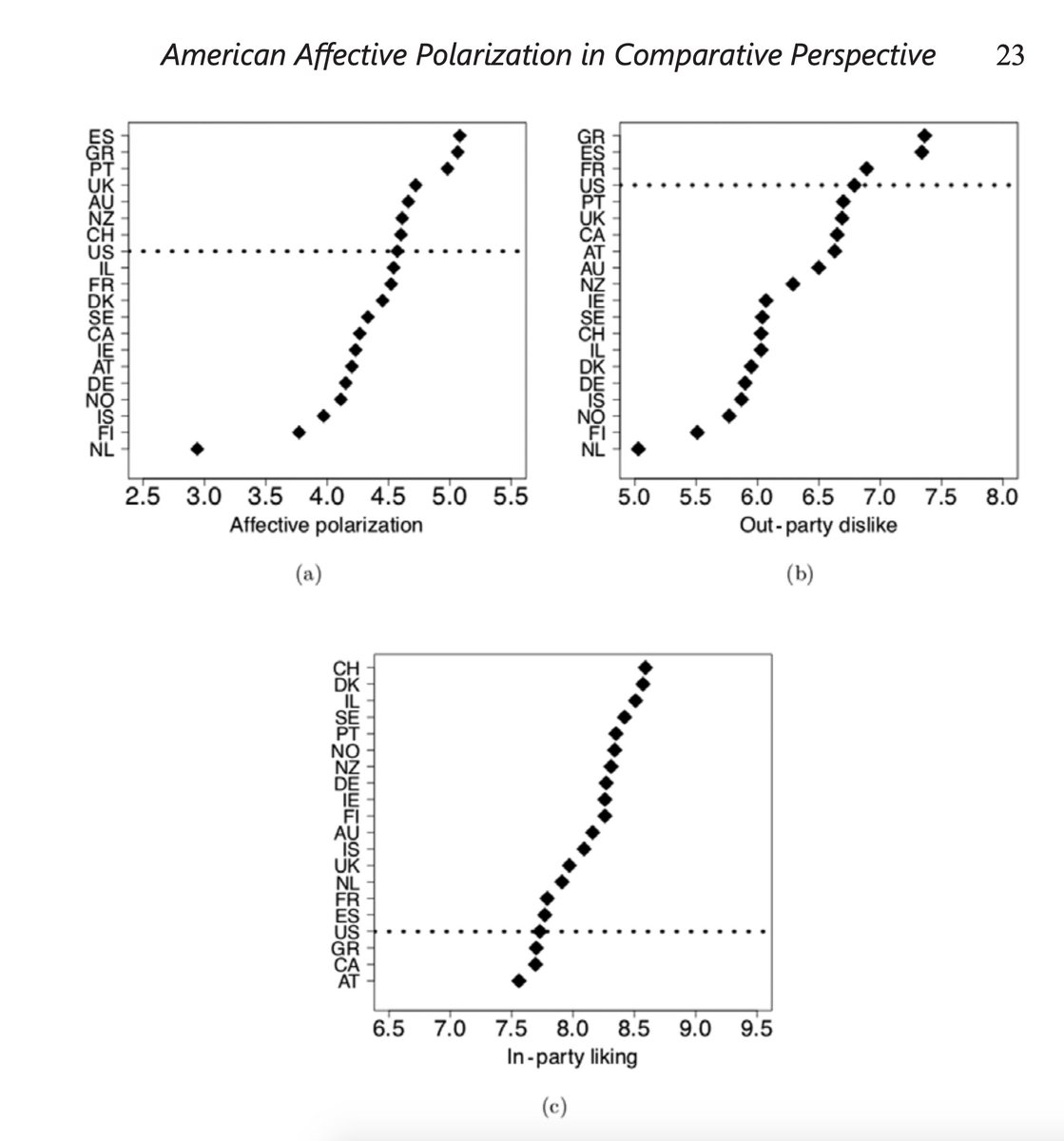
Important graphs for Dutch journalists, politicians, and pundits. The Netherlands has the lowest (!) level of "affective polarization" and the lowest (!) level of "out-party dislike" from group of 20 Western democracies. 1/ 

These are national averages of the individual subtractions of the average (!) "out-party dislike" from the "in-party liking".
In other words, "dislikes" of all other relevant parties are averaged (for instance, from GL to PVV) and subtracted from "in-party" (eg VVD) like. 2/
In other words, "dislikes" of all other relevant parties are averaged (for instance, from GL to PVV) and subtracted from "in-party" (eg VVD) like. 2/
One reason for low score of "affective polarization" could be the rather low average score of "in-party liking". 3/
Another possible reason could be the high number of relevant parties in the Netherlands, which means there will be several relatively close to your "in-party" (and could explain modest in-party liking too). 4/
But whatever reasons, and problems of this specific indicator, it is more evidence that Dutch society is not polarized. 5/
As other studies also show, Dutch people are not angry, they are actually very satisfied.
Ever since D66 started with its "kloof" (gap), between elites and people, political divisions and public dissatisfaction has been exaggerated in political and public debates. 6/
Ever since D66 started with its "kloof" (gap), between elites and people, political divisions and public dissatisfaction has been exaggerated in political and public debates. 6/
The "Fortuyn trauma" has given this a distinct right-wing populist interpretation, which has shaped Dutch politics and political debates for two centuries now. 7/
There are obviously problems, and there is dissatisfaction, but overall the Netherlands is doing much better than most Western democracies. 8/
Related to that, extreme fragmentation ("Dutchification") is not necessarily an indication of dissatisfaction. In fact, it can increase satisfaction, as more people can find a party close(r) to their own specific combination of priorities and values. 9/
In conclusion, it is high time that the political and public debate is starting to (better) reflect the reality in society and start discussing Dutch politics in society in more nuanced terms (and in more comparative terms). 10/
It is also important that there is more debate about the polarized political and public debate and the dangers of elite polarization (see US). Ironically, it was the great Dutch political scientist Arend Lijphart who emphasized the importance of elite moderation! #TheEnd
FYI @TomWGvdMeer @SimonOtjes @SLdeLange @CatherineDVries @Markla94 @KatiPiri @tomlouwerse @hakhverdian @CarolienvanHam @CarolineGruyter @alexandreafonso @almodozo @apjvalk @mattsteinglass
• • •
Missing some Tweet in this thread? You can try to
force a refresh







